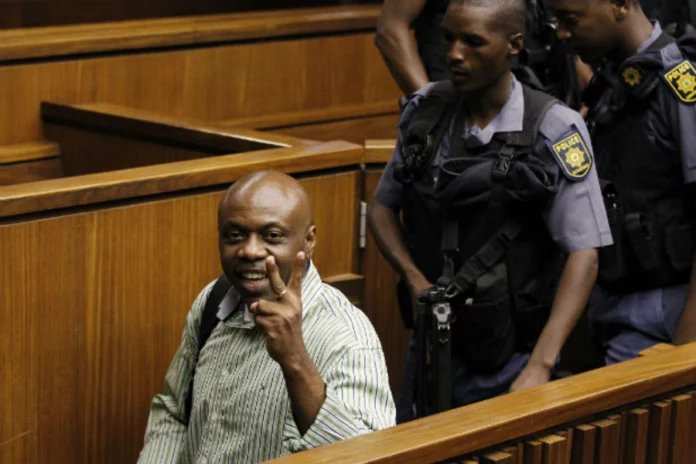The hope of freedom for Henry Okah, the incarcerated leader of the Movement for the Emancipation of the Niger Delta (MEND), has received a significant boost following a key ruling by South Africa’s Constitutional Court on February 18, 2025. The court’s decision paves the way for Okah to challenge his long-standing imprisonment, raising fresh questions over the legality of his conviction.
At the heart of the latest ruling lies a complex legal saga that has gripped both South African and Nigerian attention. Okah, who has been serving a 24-year sentence in South Africa since his conviction in 2013, has consistently maintained that his arrest and subsequent trial were based on flawed legal grounds. The February 18 decision allows him to submit fresh applications to the Constitutional Court, which could potentially lead to a review of his imprisonment.
This pivotal development follows an earlier ruling by South Africa’s Judicial Conduct Committee (JCC) on February 12, which approved a judicial inquiry into allegations that former South African Chief Justice Raymond Zondo had been involved in undermining Okah’s legal rights. Okah’s legal team had accused the court’s registrar of tampering with the content of their applications, an action they claim was aimed at sabotaging their case.
Okah’s lawyer, Sipho Khumalo, expressed optimism over the ruling, which, he argues, brings Okah closer to securing a fair hearing. “This is a major step forward for justice,” Khumalo stated in an exclusive interview with News Express. “The court has acknowledged the flaws in the system that have kept Henry Okah behind bars for far too long. Now, we will have the chance to present our case on the illegality of his detention.”
The case against Okah is rooted in the 2010 Abuja car bombing, which killed dozens and injured many others. MEND, a militant group that Okah led, claimed responsibility for the attack. At the time of his arrest in 2010, Okah was residing in South Africa, where he was detained and later sentenced to 24 years in prison for terrorism-related charges. South Africa’s courts found him guilty of masterminding the bombing as part of the group’s ongoing campaign for the emancipation of the oil-rich but impoverished Niger Delta region in southern Nigeria.
For years, Okah has fought for his release, citing what he believes are fundamental flaws in the judicial processes that led to his conviction. His defense argues that the South African authorities overstepped their jurisdictional bounds when prosecuting him, as the alleged crimes took place in Nigeria and not on South African soil. Furthermore, Okah’s legal team has argued that the South African state failed to adhere to Section 15 of its anti-terrorism law, which provides extraterritorial jurisdiction for terrorism cases.
In 2018, the Constitutional Court ruled against Okah in the landmark S v Okah case, affirming his conviction. The ruling cited the legal interpretation of South Africa’s anti-terrorism laws and allowed Okah’s continued imprisonment. However, Okah’s legal team now contends that the court failed to properly consider the jurisdictional issues surrounding the case.
“This is not just about Henry Okah,” said Khumalo. “It is about the integrity of South Africa’s legal system. If we can prove that the courts lacked the jurisdiction to hear this case, it would set a precedent for future cases where foreign nationals are charged under similar circumstances.”
While the February 18 ruling did not directly address the substance of Okah’s challenge to his conviction, it does provide him with a crucial opportunity to present his arguments afresh. The court’s decision could ultimately determine whether Okah’s legal battle reaches new heights or falters under the weight of past rulings.
The ruling also comes amid broader concerns about the fairness and transparency of legal proceedings for individuals accused of terrorism in both South Africa and Nigeria. Critics have long raised questions about the extent to which foreign nationals are subjected to different legal standards in South Africa, with some arguing that political pressures from both the Nigerian government and international oil companies have influenced legal outcomes in high-profile cases like Okah’s.
Henry Okah’s case also stands at the intersection of geopolitics, as it highlights the tensions between the Nigerian government and the oil-bearing region of the Niger Delta, where militant groups like MEND have long fought for greater control over local resources and political autonomy. Okah’s imprisonment has been viewed by many as part of a larger political strategy to suppress dissent from oil-producing regions, which have long suffered from environmental degradation and economic marginalization.
In a statement issued by his family following the court’s decision, Okah’s wife, Nkechi Okah, expressed her gratitude and hope for the future. “We have never given up hope that the truth will prevail. Today, we take a step closer to achieving justice for Henry. His fight is not only for himself but for the voiceless people of the Niger Delta who have suffered for decades,” she said.
For now, the legal battle is far from over, and while this latest ruling gives Okah a glimmer of hope, it is unclear when the Constitutional Court will hear his new applications or whether the court will ultimately agree to revisit the matter. However, the decision represents a shift in Okah’s legal fortunes, offering him a final chance to argue that his detention was unlawful.
This ruling has already become a topic of intense debate in legal and political circles in both South Africa and Nigeria. In Pretoria, the judicial community has been divided, with some legal experts praising the decision as a victory for transparency and the rule of law, while others caution that it risks reopening wounds related to South Africa’s controversial involvement in international terrorism cases.
For now, all eyes are on Henry Okah, as he prepares to challenge his imprisonment once again in South Africa’s highest court. Whether or not his appeals succeed, this latest ruling has underscored the enduring relevance of the Niger Delta conflict in shaping international legal debates.

